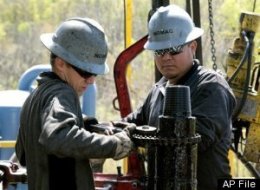 The natural gas boom gripping parts of the U.S. has a nasty byproduct: wastewater so salty, and so polluted with metals like barium and strontium, that most states require drillers to get rid of the stuff by injecting it down shafts thousands of feet deep.
The natural gas boom gripping parts of the U.S. has a nasty byproduct: wastewater so salty, and so polluted with metals like barium and strontium, that most states require drillers to get rid of the stuff by injecting it down shafts thousands of feet deep.
Not in Pennsylvania, one of the states at the center of the gas rush. There, the liquid that gushes from gas wells is only partially treated for substances that could be environmentally harmful, then dumped into rivers and streams from which communities get their drinking water.
In the two years since the frenzy of activity began in the vast underground rock formation known as the Marcellus Shale, Pennsylvania has been the only state allowing waterways to serve as the primary disposal place for the huge amounts of wastewater produced by a drilling technique called hydraulic fracturing, or fracking.
State regulators, initially caught flat-footed, tightened the rules this year for any new water treatment plants but allowed any existing operations to continue discharging water into rivers.





 Several more beach homes have crashed into the ocean along North Carolina’s Outer Banks, littering the...
Several more beach homes have crashed into the ocean along North Carolina’s Outer Banks, littering the... A powerful winter weather system — including an intense low-pressure "bomb cyclone" along the East Coast...
A powerful winter weather system — including an intense low-pressure "bomb cyclone" along the East Coast...






























